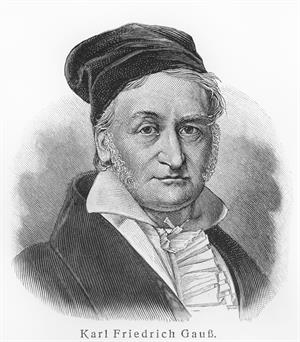
PUMPA - SMART LEARNING
எங்கள் ஆசிரியர்களுடன் 1-ஆன்-1 ஆலோசனை நேரத்தைப் பெறுங்கள். டாப்பர் ஆவதற்கு நாங்கள் பயிற்சி அளிப்போம்
Book Free Demo
Carl Friedrich Gauss (1777-1855) is widely acknowledged as one of the finest mathematicians.
There is a very famous story that involved Gauss when he was in primary school. Gauss's teacher once instructed his students to add all the numbers from 1 to 100, expecting that they would be engaged for a long time. However, he was surprised when young Gauss scribbled down the number 5050 after a few seconds of thinking. The teacher was perplexed as to how his student had mentally computed the total so fast, but Gauss pointed out that the issue was rather easy.
As a result, he made the following observation:
1 + 2 + 3 + …. + 98 + 99 + 100.
He added the numbers in pairs. That is:
The first number (1) with last number (100),
The second number (2) with second last number (99),
The third number (3) with the third last number (98), and so on.
1 + 100 = 101
2 + 99 = 101
3 + 98 = 101
\vdots \vdots
49 + 52 = 101
50 + 51 = 101
Gauss found that the sum of the numbers within these pairs will always be 101.
Total number of pairs = 50
Sum of these pairs = 50 \times 101 =5050
So, the sum of all the numbers from 1 to 100 is 5050.
Gauss's approach creates a general formula for the sum of the first 'n' natural numbers, name that:
Thanks to Gauss! This will lead us to explore some more special ways of adding numbers.
There are some series whose sum can be expressed by explicit formulas. Such series are called special series.
We will look at some common special series.
(i) Sum of first 'n' natural numbers.
(ii) Sum of first 'n' odd natural number.
(iii) Sum of squares of first 'n' natural numbers.
(iv) Sum of cubes of first 'n' natural numbers.
We can obtain the formula for the sum of any powers of first 'n' natural numbers using the expression (x + 1)^{k + 1} - x^{k + 1}.